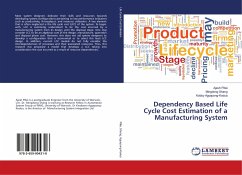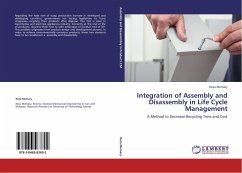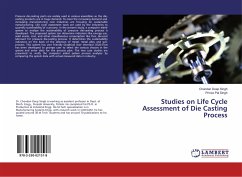Most system designers dedicate their skills and resources towards developing system configurations pertaining to key performance indicators such as productivity, throughput, and resource utilisation. A key element that is often neglected is the life cycle cost (LCC) of the system. To begin with, LCC is commonly understood to be the cost incurred by a manufacturing system from its design until the disposal stage. One may consider LCC to be an algebraic sum of the design, manufacture, operation and disposal phase cost. However, this does not aid system designers to develop a configuration that is economical or to select the least LCC design. In addition, current LCC models do not fully consider the interdependencies of processes and their associated resources. Thus, this research has proposed a model that develops a LCC taking into consideration the cost incurred as a result of resource dependencies.
Bitte wählen Sie Ihr Anliegen aus.
Rechnungen
Retourenschein anfordern
Bestellstatus
Storno








